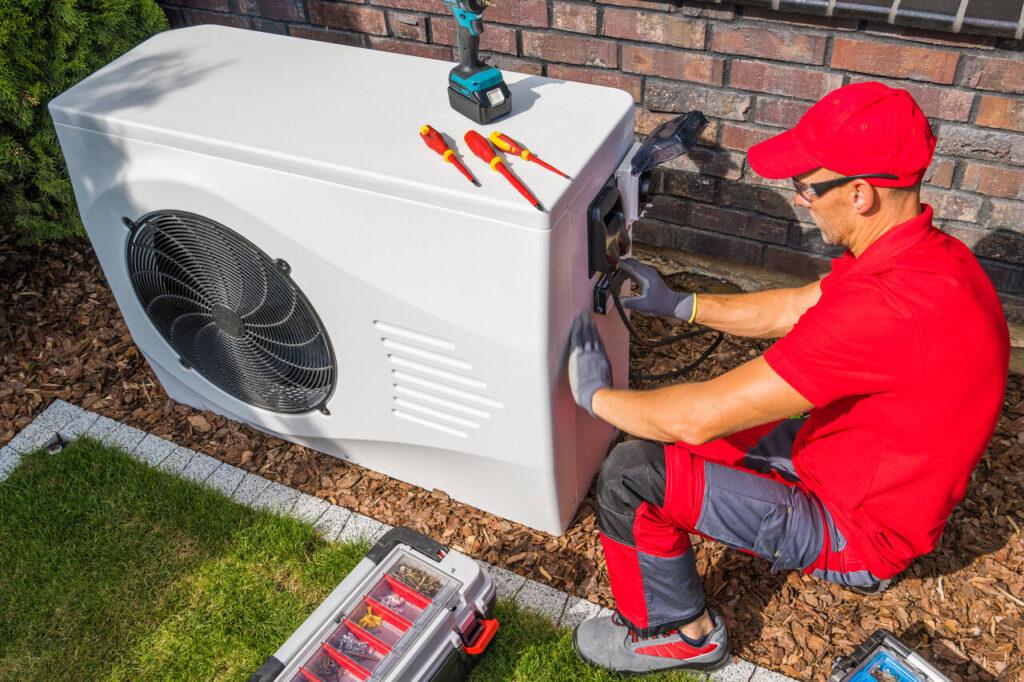As a homeowner, striking a balance between maintaining a comfortable indoor environment and maximizing energy efficiency can be challenging, especially when it comes to selecting the right heating and cooling system. Heat pump systems have rapidly gained popularity in recent years due to their versatility, energy efficiency, and year-round functionality. These systems provide an effective and cost-efficient solution for homeowners looking to enhance their indoor comfort while minimally impacting their energy consumption.
Investing in a heat pump system might be the best decision for your home, particularly if you live in a region with relatively mild winters and moderate to high summer temperatures. With our expert guidance, you can evaluate your specific heating and cooling requirements, explore the functionality and versatility of heat pump systems, and understand why professional installation and maintenance services are essential for maximizing the performance and longevity of these systems.
Join us on this journey to understand heat pump systems better, as we provide valuable insights and advice on making the best choice for your home’s heating and cooling needs.
How Heat Pump Systems Work
Heat pump systems are unique in that they serve a dual purpose, providing both heating and cooling capabilities for your home. To understand the benefits and efficiency of these systems, it’s essential to examine their mode of operation:
- Heating Mode: In heating mode, a heat pump extracts heat from the air or ground outside your home and transfers it indoors. This process is highly efficient, as it requires minimal energy to move heat rather than generate it.
- Cooling Mode: When in cooling mode, the heat pump functions as a traditional air conditioner, moving heat from inside your home to the outdoors. This dual functionality allows for a single system to manage your home’s year-round temperature control needs.
Factors Affecting Heat Pump Efficiency
The efficiency of heat pump systems depends on several factors:
- Climate: Heat pump systems are most effective in moderate climates. If temperatures drop below freezing, the system’s efficiency may decrease, and a supplemental heating source may be necessary.
- System Type: Air-source and ground-source heat pumps have varying efficiencies. Ground-source systems often boast higher efficiency due to the more stable heat source provided by the earth.
- Temperature Setting: Maintaining consistent indoor temperature settings will enable your heat pump system to perform optimally, avoiding sudden changes that may strain the system.
- Proper Sizing: Ensuring your heat pump system is the appropriate size for your home is crucial. An improperly sized system will struggle to maintain consistent comfort levels and may lead to increased energy consumption.
Importance of Professional Installation
Professional installation is vital for the optimal performance and energy-efficiency of your heat pump system. Our technicians provide unmatched expertise in heat pump installation, guaranteeing:
- Proper Equipment Sizing: Technicians will assess your home’s specific requirements, ensuring you receive an appropriately-sized heat pump system that maximizes comfort and efficiency.
- Skilled Installation: Our skilled professionals install your heat pump system meticulously, ensuring all components function as intended and optimizing overall performance.
- Longevity: A well-installed heat pump system will have a prolonged lifespan, reducing the need for frequent repairs or replacements.
- Safety Standards: Ensuring that your heat pump system adheres to necessary safety standards is crucial, and our expert technicians continuously prioritize safety throughout the installation process.
Heat Pump System Maintenance and Support
Like any heating and cooling system, heat pump systems require regular maintenance to sustain peak performance and efficiency. Some of the essential maintenance tasks include:
- Routine Inspections: Our professionals can perform periodic inspections to monitor your system’s performance and identify any underlying issues that may compromise efficiency.
- Filter Maintenance: Regularly cleaning or replacing your heat pump system’s filters promotes unobstructed airflow and helps maintain optimal performance.
- Cleaning and Lubrication: Technicians can clean and lubricate various components of your heat pump system, ensuring proper functionality and preventing wear and tear.
- Professional Guidance: Our team will provide guidance on the appropriate maintenance schedule and offer expert support for all your heat pump system needs.
Conclusion:
Heat pump systems are an attractive option for homeowners seeking energy-efficient solutions for their home’s heating and cooling needs. These versatile systems provide year-round comfort in an economical and environmentally friendly manner. By understanding how heat pump systems function, considering factors impacting their efficiency, and recognizing the importance of professional installation and maintenance, you can confidently choose this innovative system for your home’s climate control needs.
At Gregg Heating & AC, our team of dedicated professionals stands ready to provide expert guidance and top-quality HVAC services in Wauwatosa, WI, for your heat pump system. Reach out to us today to schedule a consultation and learn how a heat pump system can transform your home’s indoor comfort while maximizing energy efficiency!











